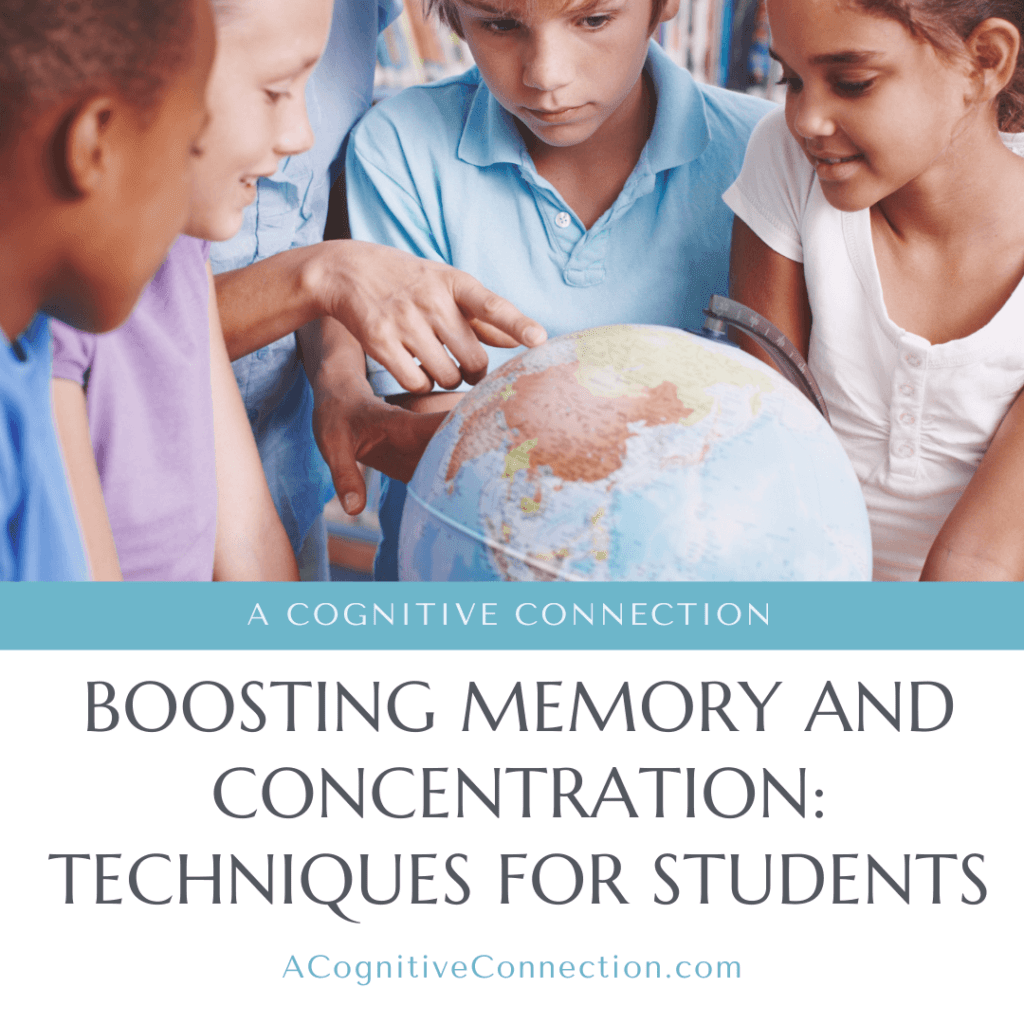Being able to pay attention and retain information for children can be hard. It can be particularly hard as they navigate elementary school where they are often switching between subjects in Math, English, Geography – you name it; all without skipping a beat. Needless to say they have a lot of information being thrown at them and the expectation is that they keep up!
On top of that, children have much shorter attention spans than adults. A child’s maximum attention span is about two to three times his age, so a five-year-old child would have an attention span of, at best, fifteen minutes. Knowing this – helping keep your students engaged is paramount if you want them to succeed academically.
Here at A Cognitive Connection, we want to give your child every opportunity to succeed, both on a personal level and at school. That’s why we devised this list of six techniques that will help increase memory and concentration as well as overall cognitive functioning.

1. Give directions in multiple formats –
Students learn in different ways. Some are visual learners while others are kinesthetic. Plus, repetition helps to drill in concepts that you want students to really take away. Therefore, coming up with multiple ways to present a lesson, whether through video, worksheets, or recordings will help all of the students capture information they otherwise wouldn’t.
2. Teach students to overlearn –
“Practice makes perfect” – they say. The same can be said for teaching students new information. Helping students understand that going over the same material multiple times is a helpful thing to know in their current (and future) studies.
3. Use visual aids to stimulate memory –
Ever heard of the concept “word substitution”? It involves replacing complex or unfamiliar terms with simpler, more familiar words that are easier to remember. For example, suppose a student is trying to remember the term “photosynthesis”. The word might seem complex and daunting to a young learner.
Using the word substitution method, the student could replace “photosynthesis” with “photo-energy-make” in their mind. “Photo” is a common prefix relating to light, “energy” is a simpler concept they might be more familiar with, and “make” captures the idea that the plant is creating something.
In this way, students can break down the complex word into smaller words, creating a way for them to more easily recall a word’s definition!
4. Encourage students to become avid readers –
Reading is one of the most beneficial intellectual activities for the brain. Think of it like jogging – when you read you are giving your brain a workout. Studies show that reading improves memory retention and also slows cognitive decline in old age.

5. Write down steps to problems –
Formulas help all of us remember things faster. The same can be said for mathematics as it can be said for grammar rules. For example, if they are performing long division problems, they should write down every step including carrying numbers. When solving word problems, they should always have a scratch piece of paper handy and write down the steps in their calculations. This will help prevent them from losing their place and forgetting what they are doing.
6. Review material before going to sleep –
It’s important to know that the information you process right before falling asleep is helpful in storing long term and short term memory. During slow-wave sleep cycles, your brain is better at absorbing information as memories are consolidated. Encouraging your students to study right before bed will help them recall things easier!
Explore Behavioral Therapy With A Cognitive Connection
If your child struggles to remember information for exams or concentrate for longer periods of time, A Cognitive Connection is here to help. From group behavioral therapy to cognitive brain training, we can help your child build the academic and personal skills needed to thrive. Book a free consultation today!


